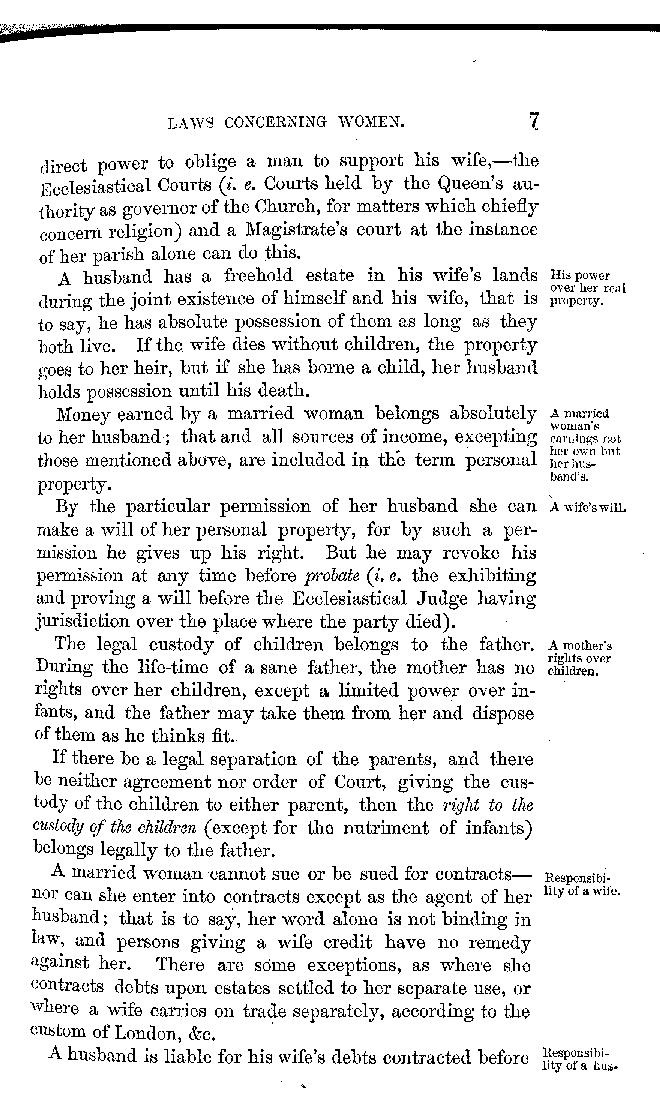direct power to oblige a man to support his wife,—the Ecclesiastical Courts (i.e. Courts held by the Queen's authority as governor of the Church,for matters which chiefly concern religion) and a Magistrate's court at the instance of her parish alone can do this.
His power over her real property.A husband has a freehold estate in his wife's lands during the joint existence of himself and his wife, that is to say, he has absolute possession of them as long as they both live. If the wife dies without children, the property goes to her heir, but if she has borne a child, her husband holds possession until his death.
A married woman's earnings not her own but her husband's.Money earned by a married woman belongs absolutely to her husband; that and all sources of income, excepting those mentioned above, are included in the term personal property.
A wife's will.By the particular permission of her husband she can make a will of her personal property, for by such a permission he gives up his right. But he may revoke his permission at any time before probate (i.e. the exhibiting and proving a will before the Ecclesiastical Judge having jurisdiction over the place where the party died).
A mother's rights over children.The legal custody of children belongs to the father. During the life-time of a sane father, the mother has no rights over her children, except a limited power over infants, and the father may take them from her and dispose of them as he thinks fit.
If there be a legal separation of the parents, and there be neither agreement nor order of Court, giving the custody of the children to either parent, then the right to the custody the children (except for the nutriment of infants) belongs legally to the father.
Responsibility of a wife.A married woman cannot sue or be sued for contracts—nor can she enter into contracts except as the agent of her husband; that is to say, her word alone is not binding in law, and persons giving a wife credit have no remedy against her. There are some exceptions, as where she contracts debts upon estates settled to her separate use, or where a wife carries on trade separately, according to the custom of London, &c.
Responsibility of a hus-A husband is liable for his wife's debts contracted before